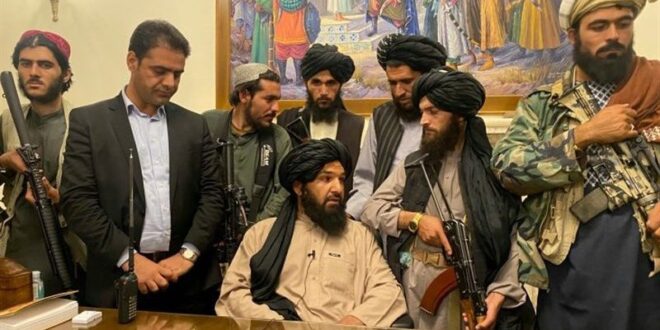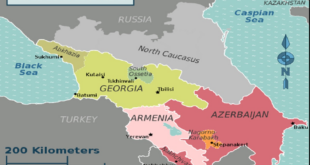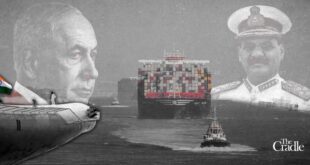The Afghan Taliban 2.0 Regime which zoomed into power in Kabul on August 15 2021 by American default of what I have earlier termed as a geopolitical suicide is perceptionaly a “China-Pakistan-Russia Franchise” facilitated into power in Kabul by this Trilateral and that Afghan Taliban captured power not on the strengths of astounding military victories over US Military Forces or supported by an upsurge of popular Afghan masses support.
Undeniably, analysing policy pronouncements and assertions at high levels emanating from Beijing, Islamabad and Moscow in the last two weeks, what emerges is that the China-Pakistan-Moscow Trilateral is playing a decisive role in controlling Afghan Taliban 2.0 Regime in Kabul. Confirming this assertion is that the only functional diplomatic missions’ operatives in Kabul today are those of China, Pakistan and Russia. All other diplomatic missions have exited Afghanistan.
Pakistan has remerged as the Chief Spokesperson for the Afghan Taliban 2.0 Regime even to the extent of Pakistan National Security Adviser Dr Moeed Yusuf being widely quoted in British media interviews warning that if the Western countries do not recognise Afghan Taliban 2.0 Regime, there could be prospects of a second 9/11.
Obviously, Pakistan and its cohorts for a Talibanised Afghanistan are geopolitically concerned that international recognition for Afghan Taliban 2.0 Regime will not be readily forthcoming. China and Russia too have been at pains in their assertions that the Afghan Taliban in 2021 have transformed.
The TV visuals and media reports emanating from Kabul in the last two weeks suggest otherwise. Once international media has access to the Afghan countryside and reports start flowing in, the overall picture is likely to be more dismal.
That the China-Pakistan-Russia Trilateral has played an intrusive role in Afghanistan’s churning dynamics prompting a US military exit has been apparent more noticeably since 2017 and hyperactive lately to hustle United States military abandonment of Afghanistan is borne out by their convergent moves in this direction.
From its embryonic inception to its current fruitation of its potential of hustling United States to virtually abandon Afghanistan on August 15 2021, their moves have stood constantly reflected in my Papers earlier on South Asia Analysis Group and now on Eurasia Review websites and on my Tweets on the subject drawing attention to the geopolitical implications,
As on August 31 2021, having achieved their common purpose it would be logical that the China-Pakistan-Russia Trilateral in times unfolding, would adopt concerted comprehensive measures to ensure that their franchisee—Afghan Talban 2.0 Regime — adopts external policy formulations henceforth which conforms to the Trilateral agenda wherein the geopolitical interests vis-à-vis Afghanistan in the regional context of China, Pakistan and Russia are served.
The China-Pakistan-Russia Trilateral would prevail over the Afghan Taliban 2.0 Regime to debar United States, West European Powers and India, as United States major strategic partner, are denied any roles in the affairs of Afghanistan.
In more plain language Afghan Taliban 2.0 Regime would be expected to deny United States, The West, and India any strategic space in Afghanistan in particular, and more notably therein also deny them strategic space in Central Asia, using Afghanistan territorial contiguity.
The United States and Major European Powers along with Major Asian Powers need to recognise this strategic reality and while scripting new policies and initiatives towards Afghanistan or China, Pakistan and Russia, factor-in the powerful leverages and influence of China-Pakistan-Russia Trilateral that will be in play in Kabul for many months to come.
The quid pro quo offered by by the China-Pakistan-Russia Trilateral for the Afghan Taliban 2. 0 Regime would be that these three nations would not interfere or impede the Afghan Taliban 2.0 Regime in Kabul to impose once again its feudal and brutally medieval Islamist suppressive form of governance of Afghanistan. In other words, Afghan Taliban 2.0 Regime governance would be a repeat of the brutal suppression of Afghanistan as during the horrific years of Afghan Taliban 1.0 Regime 1996-2001., which Afghans populace widely detests.
In short, what the Afghan people in 2021 would be facing are the prospects and consequences of unbearable suffering an Islamist despotic Afghan Taliban 2.0 Regime in Kabul whose political sustainability would be ensured by three equally despotic regimes—- two Communist authoritarian regimes of China and Russia, and the third —Pakistan even in times of civilian governments tightly controlled by the politically dominating Pakistan Army.
Against this prevailing contextual Afghanistan political dynamics a few major factors need analysis by United States, The West and Major Asian countries like India and Japan before they even consider extending even the minimum recognition of the Afghan Taliban 2.0 Regime in Kabul.
The major determinants that the Free World has to weigh-in in any determination of recognition of Afghan Taliban 2.0 Regime are (1) Does Afghan Taliban 2.0 Regime in Kabul enjoy popular Afghan masses support? (2) Has Afghan Taliban 2.0 transformed politically enough to provide effective security and stability of Afghanistan (3) Chances of Afghanistan sliding into yet another Civil War, this time with even more global implications (4) Is the China-Pakistan –Russia Trilateral are intrinsically committed to security and stability?
Addressing the last question first, it can be surmised that neither China, nor Pakistan nor Russia are committed to security and stability of Afghanistan. Their approaches to Kabul Regime can best be termed as ‘dictatorially transactional’. Russia has burnt its fingers earlier on Afghanistan. China has the resources and strengths to transform Afghanistan. But China will be wary to invest its political and economic capital to underwrite solutions of Afghanistan problems. China will be wary of Afghanistan emerging as China’s Vietnam.
China’s geopolitical interest in Afghanistan related to its main adversary, the United States, is to deny Americans strategic space where United States stays embedded in China’s underbelly of its restive Western Regions of China Occupied Xingjian and China Occupied Tibet.
Pakistan is not geopolitically equipped in 2021 nor has independent means to underwrite Afghanistan’s security and stability without the China Factor and China’s support.
Going by present indicators, the Afghan Taliban 2.0 Regime does not enjoy popular support of the Afghan masses as seen by the Afghan Exodus at Kabul Airport, towards Iran in the West, to Tajikistan in the North and towards even Pakistan in the East.
In terms of the prospects of another Civil War in Afghanistan occurring once again in terms of risk forecasting it can be stated that ‘High Risk’ exists.. Traditional resistance to the Afghan Taliban has already assumed shape in the irredoutable Panjshir Valley. This time around the Afghan Taliban may also be faced with prospects of ‘urban terrorism’ by its opponents and rival Islamist Terrorist groups.
Afghan Taliban 2.0 Regime is highly unlikely to dispense with its Sunni Pushtoon-centric orientations and despite all the veneer of modernity being applied on its image will continue in its earlier mould.
In conclusion, it needs to be stressed that Afghanistan under China-Pakistan-Russia Trilateral tutelage exercised through its ‘franchisee’ Afghan Taliban 2.0 Regime in Kabul faces far more uncertainties as regards its security and stability than the last 20 years that US Military Forces provided protective cover against Afghan Taliban depredations and its Pakistan Army supported Islamist terrorist affiliates.
With a ‘High Risk’ of an Afghan Civil War ensuing and consequent political upheaval all over the country, the global Major Powers, notably the United States, The West, India and Japan must not extend diplomatic recognition to Afghan Taliban 2.0 Regime in Kabul unless it can decisively shake-off its dependence on the China-Pakistan-Russia Trilateral.
The above is a Big IF!
 Eurasia Press & News
Eurasia Press & News




